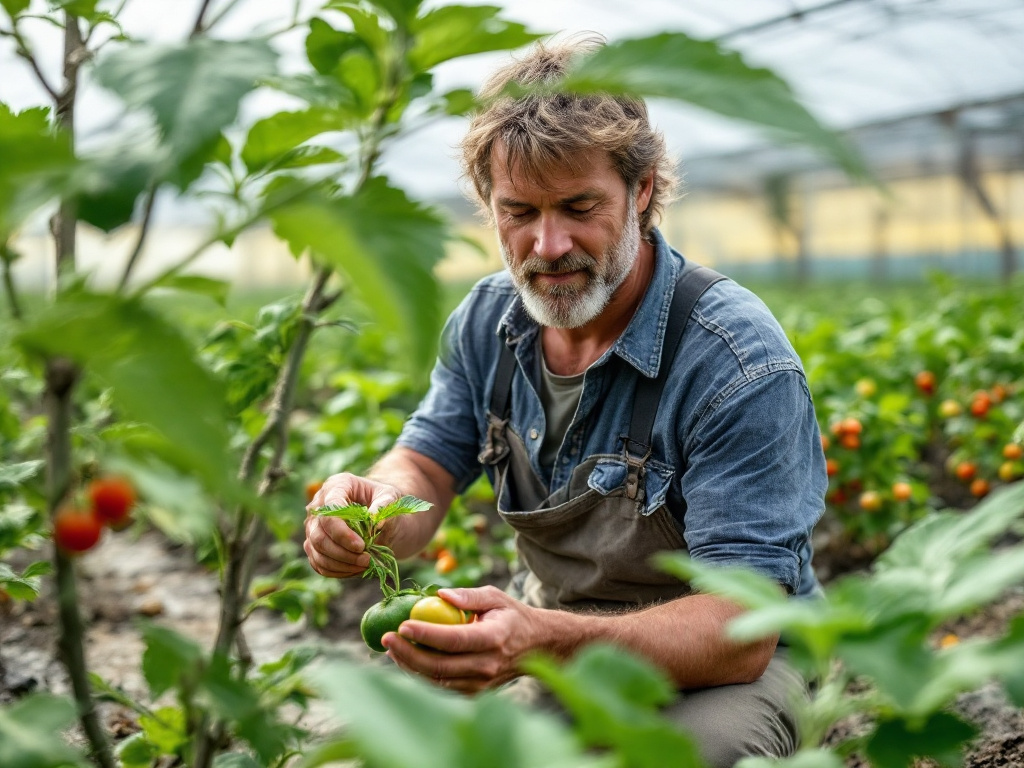Image generated by flux-ai.io & content generated by ChatGPT Version 4o-mini
Fighting Vegetable Diseases: What Farmers in Miami-Dade Need to Know
If you’ve ever bitten into a juicy tomato or crunchy cucumber from a local farmer’s market, you might not think about the challenges that farmers face in growing these vegetables. A recent study from the University of Florida highlights an essential approach called Integrated Pest Management (IPM), which can significantly help vegetable growers in Miami-Dade County combat diseases that threaten their crops.
What is Integrated Pest Management?
Think of IPM as a multi-tool for farmers. It integrates various methods, including cultural, biological, physical, and chemical strategies, to keep plants healthy and productive while being ecologically sound. This strategy starts with choosing vegetable varieties that are more resistant to diseases. For example, certain tomato plants are bred to resist common diseases, making them a smart choice for local farmers.
Why Does This Matter to Miami-Dade?
Miami-Dade is known for its vibrant agricultural scene, with thousands of farms producing everything from tomatoes to peppers. However, the humid climate here can create perfect conditions for diseases. Just like how mold can grow in damp environments at home, crops can suffer from diseases that thrive in moist conditions.
The IPM study emphasizes prevention, which is crucial in our subtropical climate. Farmers can minimize disease by ensuring that their irrigation systems don’t leave plants too wet. By using methods like drip irrigation instead of overhead watering, they reduce the chances of water sitting on leaves—an invitation for diseases.
Monitoring and Management
Regular monitoring of crops is another key component of IPM. Farmers are encouraged to scout their fields frequently, looking for signs of disease or pests. In Miami-Dade, where crops often grow closely together, early detection can prevent the spread of diseases.
Farmers can also utilize technology to assist them. For instance, weather data can inform them when conditions are conducive to disease outbreaks. This allows for timely interventions, applying treatments only when necessary, which saves money and protects the environment.
Practical Steps for Local Farmers
-
Soil Health: Healthy soil is the foundation of healthy plants. Farmers should regularly test their soil and follow best practices for fertilization and irrigation, particularly in areas where soilborne diseases are common.
-
Crop Rotation: Changing the types of crops grown in a field each season can help break the cycle of disease. For instance, if a farmer has a history of tomato diseases, growing beans or corn for a season can help reduce pathogen levels in the soil.
-
Sanitation: Farmers must practice good sanitation by cleaning their tools and equipment to avoid transferring diseases from one field to another.
-
Biological Control: Many farmers in Miami-Dade are turning to natural solutions, such as beneficial insects or fungi, which can help control disease-causing pathogens without adverse chemical effects.
The Bigger Picture
The findings from this research not only help farmers grow better crops but also contribute to the local economy. Agriculture is a significant part of Miami-Dade’s economy, generating billions of dollars and providing jobs for many residents. When farmers succeed, everyone benefits—from the economy to the dinner table.
In conclusion, as local farmers adopt these integrated strategies to manage vegetable diseases, they can ensure that the produce you enjoy is not only delicious but also grown sustainably. So, the next time you visit a local market, remember the hard work behind that fresh tomato and the smart science aiding in its production!
References
Error generating citation: 410 Client Error: Gone for url: https://edis.ifas.ufl.edu/publication/PP111

